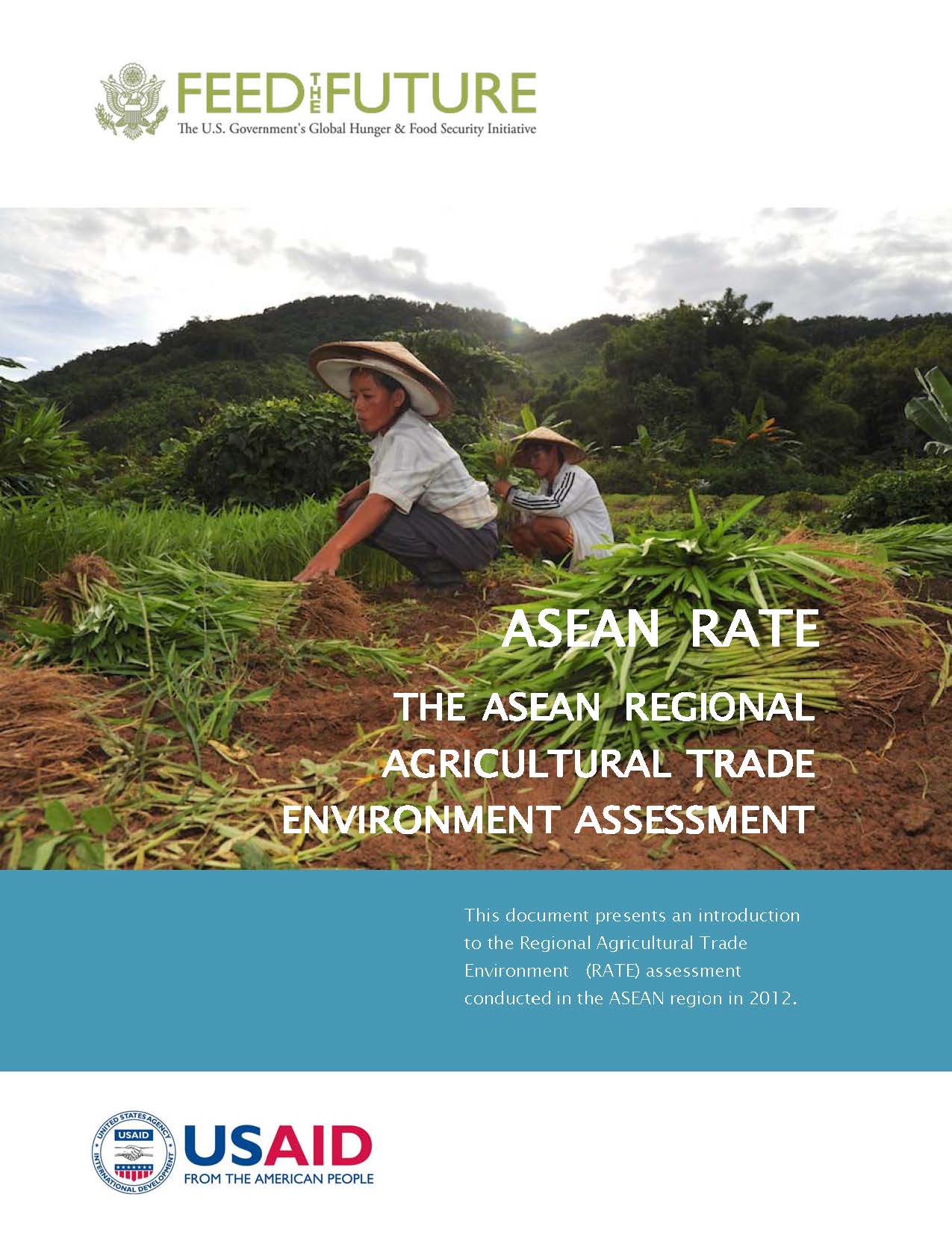The Regional Agricultural Trade Environment assessment, implemented by the USAID Maximizing Agricultural Revenue through Knowledge, Enterprise Development and Trade Project, is a tool for examining the agricultural trade enabling environment of countries that are members of regional organizations, to help regions streamline and strengthen their approaches to cross-border trade and food security. The assessment reports are grounded in USAID’s commitment, through its Feed the Future Initiative, to facilitate the integration of farmers and rural industries into the full chain of production, from “farm to fork,” enabling them to better connect with agricultural trade and market opportunities.
Launched in April 2012, the assessment reports cover seven of the 10 member states of the Association of Southeast Asian Nations (ASEAN). It examines a range of agriculture and trade-related policies, laws, institutions, and social dynamics that impact the environment for trade, both with respect to international markets, and, critically, among ASEAN Member States themselves.
The reports:
- Analyze the trade environment for agricultural products in each country,
- Explain how that environment affects trade in agricultural commodities and food security, and
- Recommend legal and institutional reforms necessary to improve trade in agricultural products.
Seven reports focus on individual countries and 10 address specific topics. All reports promote private sector advocacy and monitoring of reform at the national and regional levels.








Comment
Make a general inquiry or suggest an improvement.